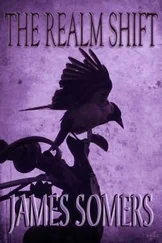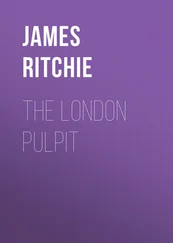James Ritchie - The Real Gladstone - An Anecdotal Biography
Здесь есть возможность читать онлайн «James Ritchie - The Real Gladstone - An Anecdotal Biography» — ознакомительный отрывок электронной книги совершенно бесплатно, а после прочтения отрывка купить полную версию. В некоторых случаях можно слушать аудио, скачать через торрент в формате fb2 и присутствует краткое содержание. Жанр: foreign_prose, на английском языке. Описание произведения, (предисловие) а так же отзывы посетителей доступны на портале библиотеки ЛибКат.
- Название:The Real Gladstone: An Anecdotal Biography
- Автор:
- Жанр:
- Год:неизвестен
- ISBN:нет данных
- Рейтинг книги:4 / 5. Голосов: 1
-
Избранное:Добавить в избранное
- Отзывы:
-
Ваша оценка:
- 80
- 1
- 2
- 3
- 4
- 5
The Real Gladstone: An Anecdotal Biography: краткое содержание, описание и аннотация
Предлагаем к чтению аннотацию, описание, краткое содержание или предисловие (зависит от того, что написал сам автор книги «The Real Gladstone: An Anecdotal Biography»). Если вы не нашли необходимую информацию о книге — напишите в комментариях, мы постараемся отыскать её.
The Real Gladstone: An Anecdotal Biography — читать онлайн ознакомительный отрывок
Ниже представлен текст книги, разбитый по страницам. Система сохранения места последней прочитанной страницы, позволяет с удобством читать онлайн бесплатно книгу «The Real Gladstone: An Anecdotal Biography», без необходимости каждый раз заново искать на чём Вы остановились. Поставьте закладку, и сможете в любой момент перейти на страницу, на которой закончили чтение.
Интервал:
Закладка:
‘A cipher’s sought,
A cipher’s found;
His work is nought,
His name is Round.’
The question for the electors was, as Mr. Gladstone put it, ‘Whether political Oxford shall get shifted out of her palæozoic position into one more suited to her position and work as they now stand.’ On August 2 Mr. Gladstone writes that he heard, not without excitement, the horse’s hoofs of the messenger bearing the news of the poll. He was elected by a majority of 173 over Mr. Round, the senior member, Sir Robert Inglis, being some 700 votes in advance of him. Mr. Hope Scott has left it on record that Mrs. Gladstone was a copious worker on her husband’s behalf. Sir Robert Peel went down to vote for his colleague. The venerable Dr. Routh, then nearly ninety-two years old, left his seclusion at Magdalen College to vote for him. The feeling of Mr. Gladstone’s supporters may be summed up in a letter written by Dr. Moberly, afterwards Bishop of Gloucester, to a doubtful voter:
‘For my own part, I certainly disapprove of Mr. Gladstone’s vote on the godless colleges in Ireland, and I am not sure, even though I acknowledge the difficulties of the case, whether I approve of that respecting Maynooth; but I feel that I am not specially called on to reward or punish individual voters as to select the deepest , truest , most attached , most efficient advocate for the Church and Universities in coming, and very probably serious, dangers. I think your correspondence with Gladstone’s committee has probably done great good. It is very useful that Gladstone should know that there are those who are not satisfied with some of his past acts; but surely you will not press this hitherto useful course to the extreme result of refraining from voting?’
Mr. Gladstone still continued in politics to uphold Conservative traditions, apart from Free Trade. He opposed marriage with a deceased wife’s sister; he deprecated the appointment of a Commission to inquire into the Universities; but he vindicated the policy of admitting Jews to Parliament, and defended the establishment of diplomatic relations with the Court of Rome. He supported the alteration of the Parliamentary oath, but was opposed to an abstract attack on Church rates. One domestic sorrow befell him about this time, the death of a little daughter, Catherine, between four and five years old. Another difficulty which gave him much trouble was on an affair which agitated all England at one time, and was known as the Gorham case. Mr. Gorham was an Evangelical clergyman, and the Bishop of Exeter refused to institute on the ground that his views on baptism were not sound; but in March, 1850, the Judicial Committee of the Privy Council held that his teaching was not such as to debar him from preferment in the Church of England. In a letter addressed to the Bishop of London (Bloomfield), entitled ‘The Royal Supremacy viewed in the Light of Reason, History, and Common-sense,’ Mr. Gladstone contended that the Royal Supremacy was not inconsistent with the spiritual life and inherent jurisdiction of the Church, and that the recent establishment of the Privy Council as a final court of appeal in religious causes was an injurious, and even dangerous, departure from the Reformation settlement. The Bishops, he held, when ‘acting jointly, publicly, solemnly, responsibly, are the best and most natural organs of the judicial office of the Church in matters of heresy, and, according to reason, history, and the Constitution in that subject-matter, the fittest and safest counsellors of the Crown.’ To that controversy it is due to a great extent that Mr. Hope Scott and Dr. Manning went over to the Church of Rome – the two men on whom in Church matters Mr. Gladstone principally relied. The blow was severe. ‘I felt,’ said Mr. Gladstone, ‘as if I had lost my two eyes.’
In this year Mr. Gladstone was very much depressed. Sir Stafford Northcote writes: ‘He (Gladstone) was out of spirits himself about public matters, and did not paint Parliamentary life in rose colour… He is distressed at the position Peel has taken up, and at the want of sympathy between those who had acted for so many years cordially together, and he looks forward to serious Church troubles, which he thinks might possibly drive him out of Parliament.’ An idea which, had it been carried out, would have deprived the world of Mr. Gladstone’s greatest triumphs, political and oratorical. In that year came up the Don Pacifico affair, and Lord Palmerston’s triumph by means of the Romanus civis sum dictum, against which Mr. Gladstone thundered. It was, as Lord Palmerston admitted, a first-rate performance, appealing to the law of Nature and of God, and deprecating the vain conception that we, forsooth, have a mission to be the censors of vice and folly, of abuse and imperfection, among the other countries of the world, a doctrine which Mr. Gladstone subsequently seemed altogether to have departed from.
On the lamented death of Sir Robert Peel, Mr. Gladstone bore eloquent testimonies to the merits of that great man.
In the following winter Mr. Gladstone was in Naples, taken there by the illness of one of his children, for whom the medical men had recommended a warmer climate, and thence he addressed to the Earl of Aberdeen those letters denouncing the atrocities of the Italian Government which for the first time made Mr. Gladstone popular with the English people.
On his return, he found the country excited to a temporary fury, because the Pope had planned Roman Bishops in English counties. To meet it, Lord John Russell carried an Ecclesiastical Titles Bill, which Mr. Gladstone powerfully attacked, and which some twenty years after he had the pleasure of quietly repealing. But the Bill proved a death-blow to Lord John Russell’s hold on office, weakened as it was by Lord Palmerston’s retirement, in consequence of his unauthorized recognition of Louis Napoleon’s coup d’état . Lord Derby came into office, and there was a General Election.
Mr. Gladstone was sent by Lord Derby as a Lord Commissioner to the Ionian Islands, to carry out needed reforms in that part of the world, Her Majesty Queen Victoria having refused her assent to the petition of the Ionian Parliament for union with Greece. But Mr. Gladstone was to reform the Ionian Parliament, so as to make it resemble as much as possible that of England. When he left, his successor, Sir H. Stocks, wrote: ‘Gladstone is regretted by many, respected by all. Nothing could have been better than the firmness, judgment, and temper and talent he has shown. It sometimes staggers me to reflect that I have to succeed him.’
It was about this time that M. Thiers paid England a visit, having left France in consequence of the coup d’état . A dinner was made up for him, at which were present Mr. Gladstone, Bulwer the novelist, Lord Elcho, Lord Herbert of Lea, Mr. Hayward, and others. The conversation was varied and animated. Mr. Hayward writes: ‘Thiers had the advantage of language and choice of subject, but the general opinion was that Mr. Gladstone was, if anything, the superior conversationalist of the two.’
When the election of 1852 approached, the opponents of Mr. Gladstone, thinking that his friends might have been alienated by his votes on Jewish disabilities and on the Papal Aggressions Bill, brought forward a third candidate for the University, Dr. Marsham, of Merton, in spite of a declaration signed by 1,276 members; but Mr. Gladstone managed to secure a majority of 350. In the debate in November Mr. Gladstone attacked Mr. Disraeli’s Budget, and at the election following the Tories again attacked Mr. Gladstone’s seat. The opposition was a curious affair – the result of an obscure intrigue – Lord Crompton being put forward apparently without his consent and against his wish. Then Mr. Percival was suddenly brought forward. Mr. Gladstone, however, on a small poll, had a majority of 87, and his seat was saved for the time. As a rule, a University M.P. is supposed to hold his seat for life.
Читать дальшеИнтервал:
Закладка:
Похожие книги на «The Real Gladstone: An Anecdotal Biography»
Представляем Вашему вниманию похожие книги на «The Real Gladstone: An Anecdotal Biography» списком для выбора. Мы отобрали схожую по названию и смыслу литературу в надежде предоставить читателям больше вариантов отыскать новые, интересные, ещё непрочитанные произведения.
Обсуждение, отзывы о книге «The Real Gladstone: An Anecdotal Biography» и просто собственные мнения читателей. Оставьте ваши комментарии, напишите, что Вы думаете о произведении, его смысле или главных героях. Укажите что конкретно понравилось, а что нет, и почему Вы так считаете.












